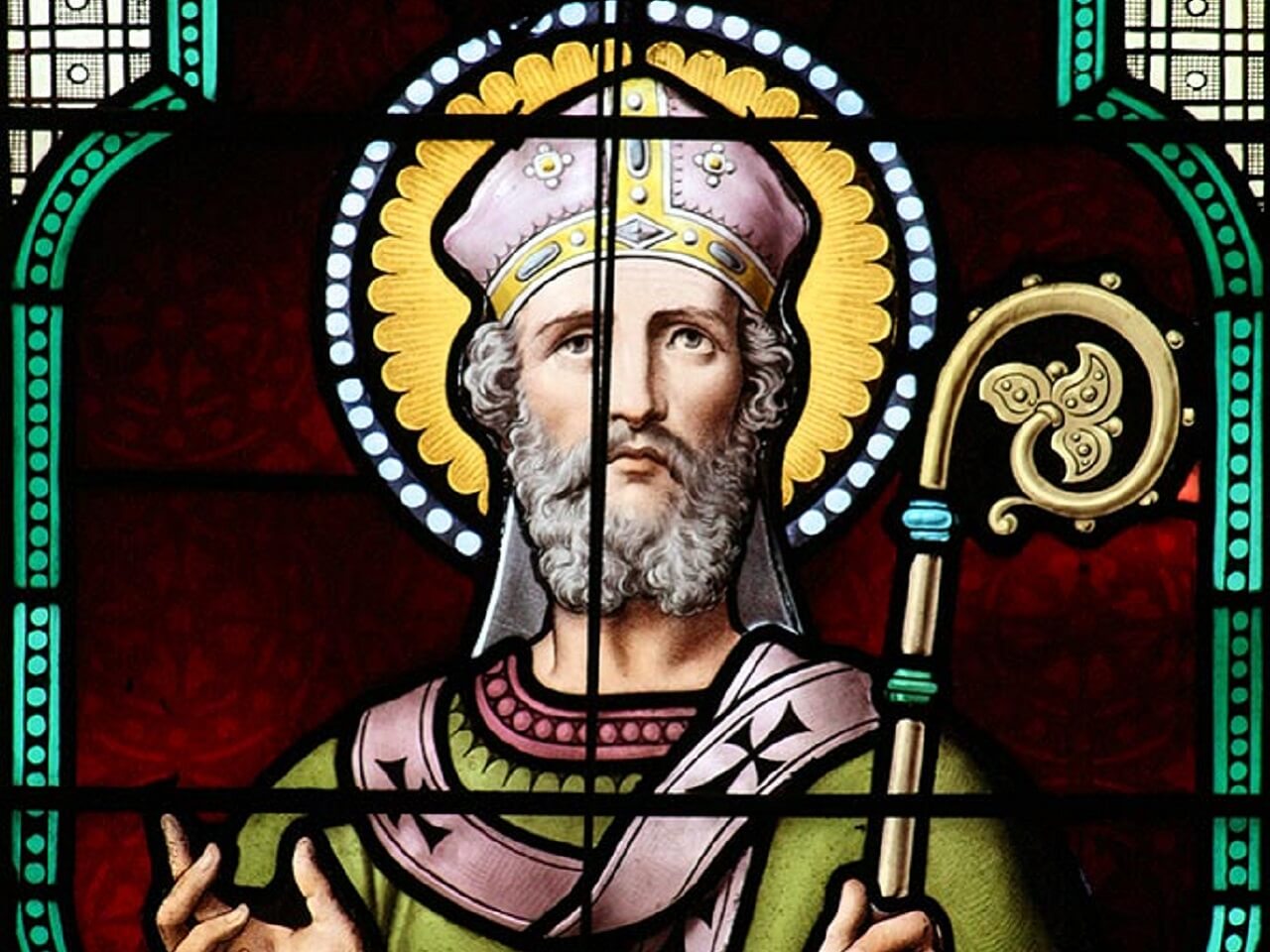He believes that he has definitely proved the existence of God: Who is Saint Anselm?
Anselmus or Saint Anselmus was a Christian philosopher who lived from 1033 to 1109 and is known for his ontological proof of the existence of God.

Anselmus, born in 1033 in Aosta, in the north of Italy, as a child of a Roman noble family, is sometimes referred to as Anselmus of Aosta.
He was educated by the priests of the Benedictine order in Aosta, where he remained until age 23. He visited different European places for about three years and entered Bec Monastery in 1059.
His mentor at Bec, Lanfranc, was the archbishop of Canterbury at the time, and Anselmus was appointed to his position in 1093 when he died in 1089.
Anselm of Canterbury (1033/4–1109), also called Anselm of Aosta (Italian: Anselmo d'Aosta) after his birthplace and Anselm of Bec (French: Anselme du Bec) after his monastery, was an Italian Benedictine monk, abbot, philosopher and theologian of the Catholic Church, who held the office of Archbishop of Canterbury from 1093 to 1109. After his death, he was canonized as a saint; his feast day is 21 April.
Anselmus, who made significant gains for the church in the fight between the Kingdom of England and the church, died on April 21, 1109. Among the works he wrote are About the Literacy (De Grammatico), Monologue, The Spirit's Calling to God (Proslogion), About the Truth (De Veritate), About the Freedom of Choice (De Libertate Arbitrii).
ANSELMUS' BELIEF IN GOD AND PHILOSOPHY OF RELIGION
He took the view of Augustine that "I believe in order to understand" and tried to base belief on reason.
He emerged as a philosopher who adopts the attitude of "I believe in order to understand" rather than "I try to understand in order to believe" and gives priority to belief or faith over reason and authority over knowledge when it comes to the belief-reason relationship. This effort of Anselmus is an indication of scholasticism's attempt to combine reason and belief.
Anselmus was of the opinion that judgments should be absolute. For example, if there is good, there must also be absolute good. If there is existence, there must be whole existence. According to him, the presence of God will be proved through this thought.
Anselm agrees with Augustine's idea that original sin persists through all generations. According to him, God took human form (Jesus) to save people from this original sin and was crucified to save all people from original sin.
In this early period of scholasticism, religion, and philosophy were tried to be reconciled. Religious concepts have been tried to be explained with reason.
ANSELMUS' PROOF OF GOD
Anselmus' proof of God is more than one. Some historians of philosophy consider three of these to be notable.
The first proof of God is actually the approach that is at the forefront of the entire history of philosophy. Accordingly, our minds and senses transmit information that there are many good things around us. The fundamental question at this point is: Are all these good things good because of one good thing; Or does the goodness in each of them contain a unique feature? Of course, the answer given by Anselmus to this question is obvious: All good things are good for one good reason.
Another proof of God by Anselmus shows a development reminiscent of other proofs. According to him, everything takes its existence from a being that realizes its existence through itself.
Existence involves a certain level of perfection. Everything that is more or less perfect gets its perfection from the one who has the highest perfection, and that is God.
Finally, Anselmus puts forward the basic premise of the famous ontological proof of God by saying, "We believe that you (God) are something greater than which cannot be conceived".
ANSELMUS' ETHICS
According to Anselmus, justice is about the proper use of the will. If the will shows a proper disposition, then an action that finds the truth has emerged. Freedom of will is closely related to righteousness or honesty, which is virtuous conduct. According to Anselmus, this freedom is the state of wanting truth only for itself.
According to Anselm, the will has three meanings. Will, first of all, means the power or ability to will. Secondly, will be understood as the disposition or influence of willpower. The third meaning of will is the act of will. The emergence of these actions is a process related to knowledge. Because wanting anything necessitates taking action in accordance with the functioning of the mind. Therefore, there is a visible parallelism between choice and will and reason.
We obtain the most comprehensive information about Anselmus' life from the work titled Vita Anselmi (Anselmus's Life), written by a historian named Priest Eadmer, who met him in 1079.
Anselmus, whose father's name was Gundulf and his mother's name was Ermenberga, was educated by the priests of the Benedictine order in Aosta, where he remained until the age of 23. He visited different places in Europe for about three years and came to Bec Monastery in 1059.
Anselmus wrote some of his works during his tenure at Bec Abbey, and others while he was archbishop of Canterbury.
Some of the works he wrote, while he was archbishop of Canterbury, include: Why Did God Become Man? (Cur Deus Homo?), De Processione Spiritus Sanctus, De Sacramentis Ecclesiae, and Epistola de Incarnatione Verbi.
---------------------
St. Anselm
Feast day: Apr 21
https://www.catholicnewsagency.com/saint/st-anselm-443
